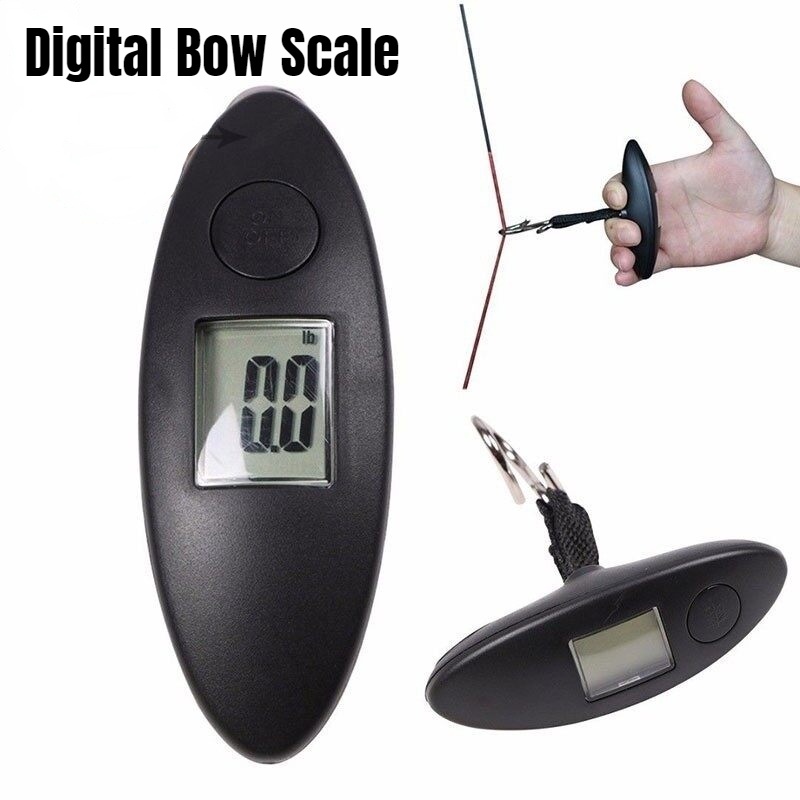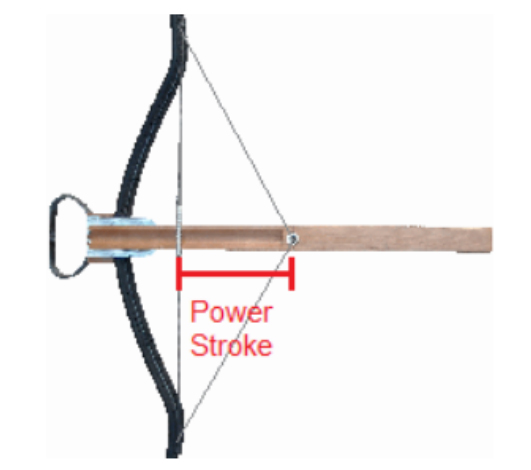Difference between revisions of "V9: Draw Weight"
From AmtWiki
(Initial creation) |
m (→Draw Weight) |
||
| (2 intermediate revisions by the same user not shown) | |||
| Line 2: | Line 2: | ||
<onlyinclude> | <onlyinclude> | ||
======<u><big>Draw Weight</big></u>====== | ======<u><big>Draw Weight</big></u>====== | ||
| − | “Draw weight” means the amount force needed to pull a bowstring to full draw. This is commonly called the bow's poundage. | + | “Draw weight” means the amount of force needed to pull a bowstring to full draw. This is commonly called the bow's poundage. |
<u>Calculating Draw Weight on a [[V9: Bows & Crossbows|Vertical Bow]]</u> | <u>Calculating Draw Weight on a [[V9: Bows & Crossbows|Vertical Bow]]</u> | ||
| Line 11: | Line 11: | ||
<u>Calculating Draw Weight on a [[V9: Bows & Crossbows|Crossbow]]</u> | <u>Calculating Draw Weight on a [[V9: Bows & Crossbows|Crossbow]]</u> | ||
| − | *Crossbow [[V9: Glossary#Draw Weight|draw weight]] is measured in Inch-pounds and | + | *Crossbow [[V9: Glossary#Draw Weight|draw weight]] is measured in Inch-pounds and requires a few extra steps compared to vertical bows. |
**Inch-pounds are calculated by multiplying draw weight (see above) by the power stroke. | **Inch-pounds are calculated by multiplying draw weight (see above) by the power stroke. | ||
**Power stroke is the length between the crossbow's string in the rearmost (cocked) position and its resting (uncocked) position, measured in inches. It very roughly equates to [[V9: Glossary#Draw Length|draw length]] in a vertical bow.<br><br> | **Power stroke is the length between the crossbow's string in the rearmost (cocked) position and its resting (uncocked) position, measured in inches. It very roughly equates to [[V9: Glossary#Draw Length|draw length]] in a vertical bow.<br><br> | ||
Latest revision as of 22:04, 26 September 2023
This page is part of the Official Amtgard V9 Alpha-Playtest Rulebook.
- The Amtwiki is the official home and primary source for Amtgard V9 Rules as of February 25, 2023.
- These rules are currently in Open Alpha Playtest. See the Playtest Disclaimer for more details.
- To learn more about Amtgard V9 Development, please visit Amtgard.com.
- To view the current Amtgard V8 ruleset, please see the Amtgard V8 Rulebook.
Draw Weight
“Draw weight” means the amount of force needed to pull a bowstring to full draw. This is commonly called the bow's poundage.
Calculating Draw Weight on a Vertical Bow
- Vertical bows measure draw weight in pounds.
- The simplest way to measure a bow’s draw weight is to use a scale that can hook onto the bowstring. Several bow draw weight scales are available that are designed for this purpose.
- Using a measuring device to draw the bowstring may make your draw shorter. Ensure you are bringing the bow to a 28” draw length.
- You can use a sufficiently long arrow and mark the 28” draw point on it so when taking measurements in the future, you can use this “ruler” arrow to save time.
Calculating Draw Weight on a Crossbow
- Crossbow draw weight is measured in Inch-pounds and requires a few extra steps compared to vertical bows.
- Inch-pounds are calculated by multiplying draw weight (see above) by the power stroke.
- Power stroke is the length between the crossbow's string in the rearmost (cocked) position and its resting (uncocked) position, measured in inches. It very roughly equates to draw length in a vertical bow.
450 Inch-Pound Quick-Reference Chart
Below is a mathless way to determine if your crossbow is legal for use in Amtgard combat. Consult the chart below and find your crossbow's power stroke. If your draw weight is equal or less than the associated value, it is legal. If it is greater, then the crossbow cannot be used.
| If Power Stroke is... | Then Your Max Draw Weight is... |
|---|---|
| 6 | 75.0 |
| 6.5 | 69.2 |
| 7 | 64.3 |
| 7.5 | 60.0 |
| 8 | 56.3 |
| 8.5 | 52.9 |
| 9 | 50.0 |
| 9.5 | 47.4 |
| 10 | 45.0 |
| 10.5 | 42.9 |
| 11 | 40.9 |
| 11.5 | 39.1 |
| 12 | 37.5 |
| 12.5 | 36.0 |
| 13 | 34.6 |
| 13.5 | 33.3 |
| 14 | 32.1 |
| 14.5 | 31.0 |
| 15 | 30 |
| 15.5 | 29 |
| 16 | 28.1 |
| 16.5 | 27.3 |
| 17 | 26.5 |
| 17.5 | 25.7 |
| 18 | 25.0 |
| 18.5 | 24.3 |
| 19 | 23.7 |
| 19.5 | 23.1 |
| 20 | 22.5 |
Glossary Terms Click here to go to the main Glossary index or use your browser's BACK button to return to a previous page.


